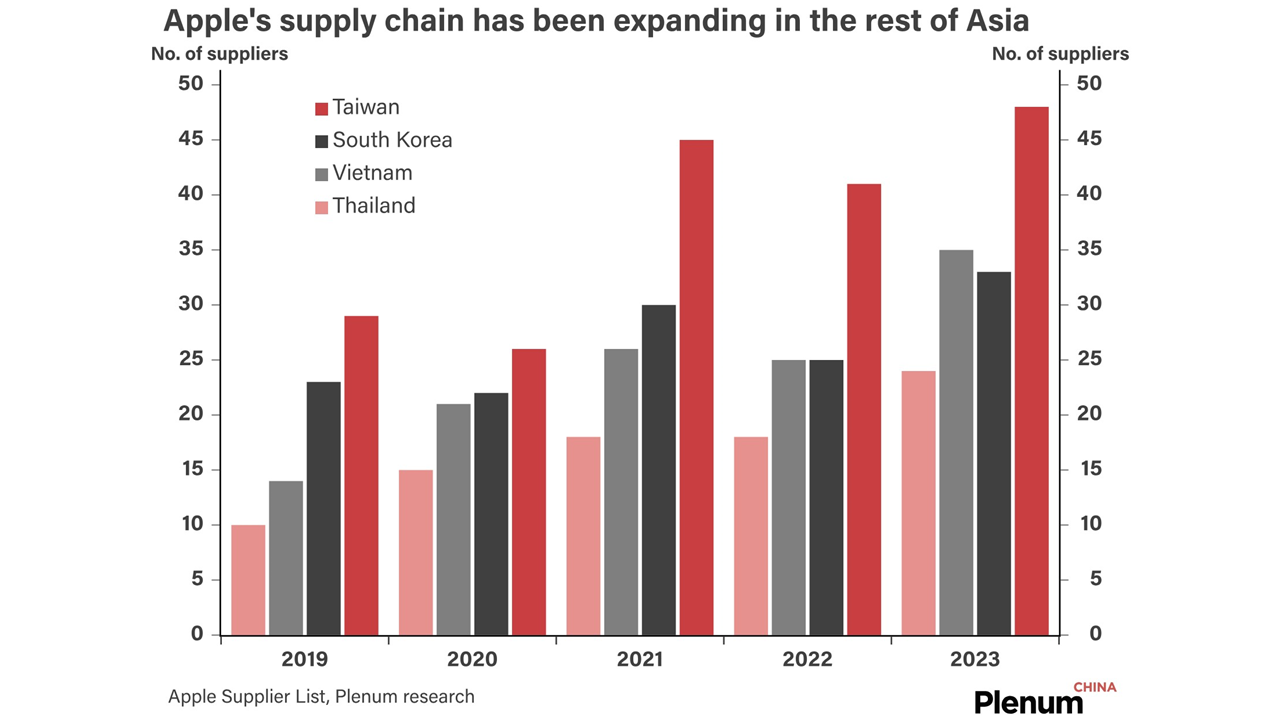
Geopolitical tensions and the pandemic triggered a diversification of Apple’s supply chain in 2021, but its move to the West appears to have been temporary.

Geopolitical tensions and the pandemic triggered a diversification of Apple’s supply chain in 2021, but its move to the West appears to have been temporary.
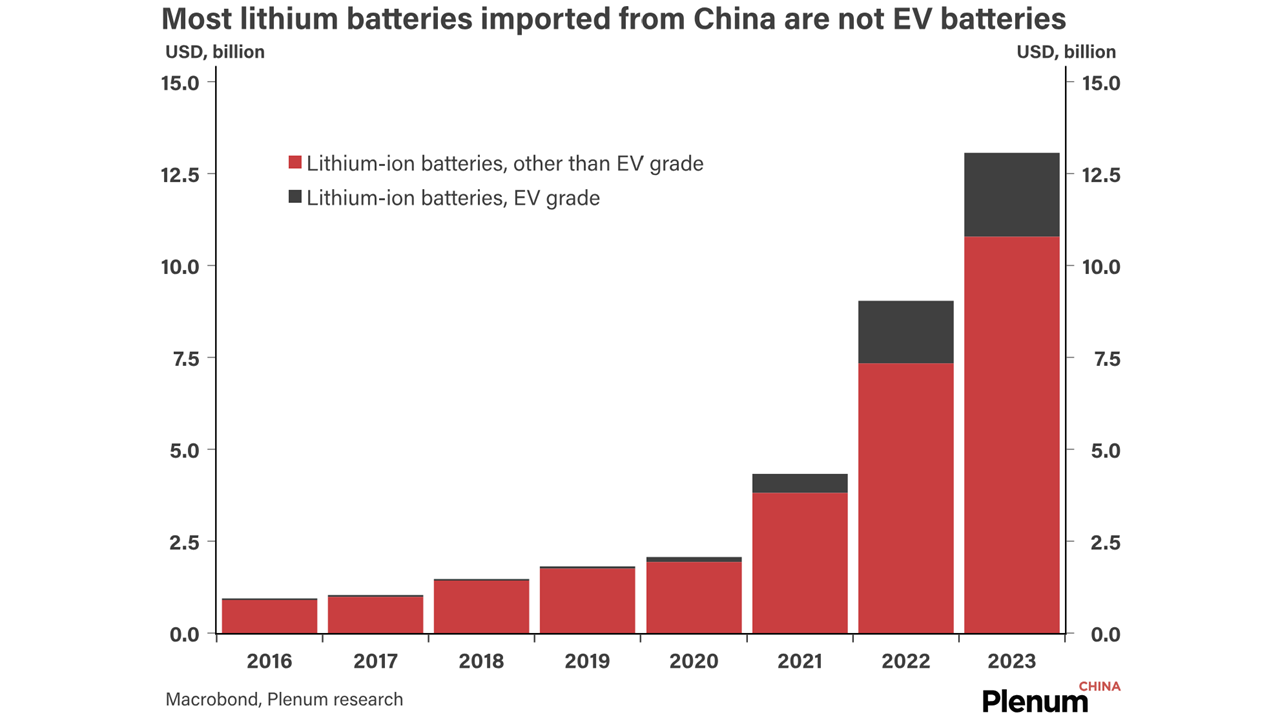
The Biden administration has completed its Section 301 review, introducing new tariffs and tariff exclusions for Chinese products.
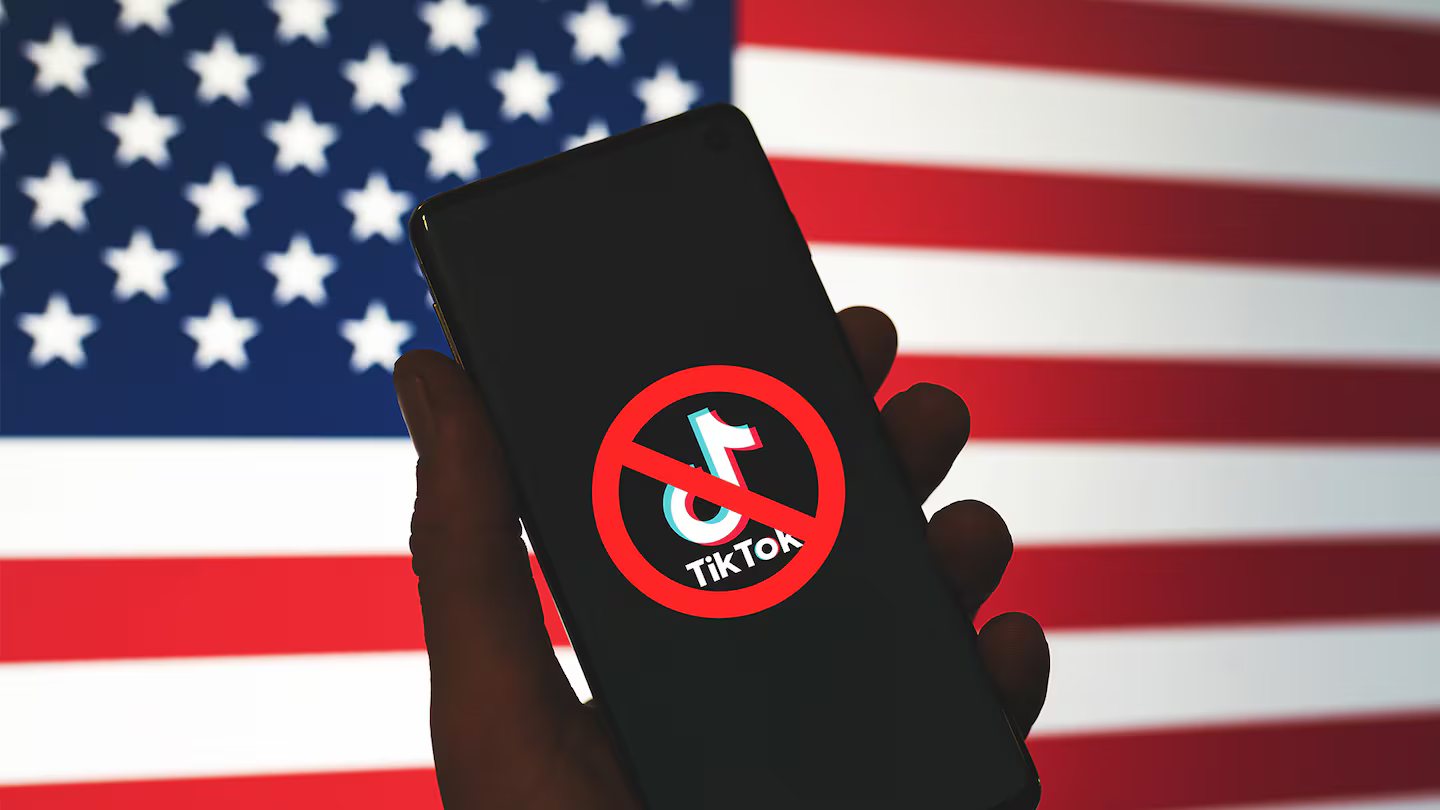
Attaching the bill to a major foreign aid package and extending the divestiture timeframe helped the bill clear political hurdles in the Senate.
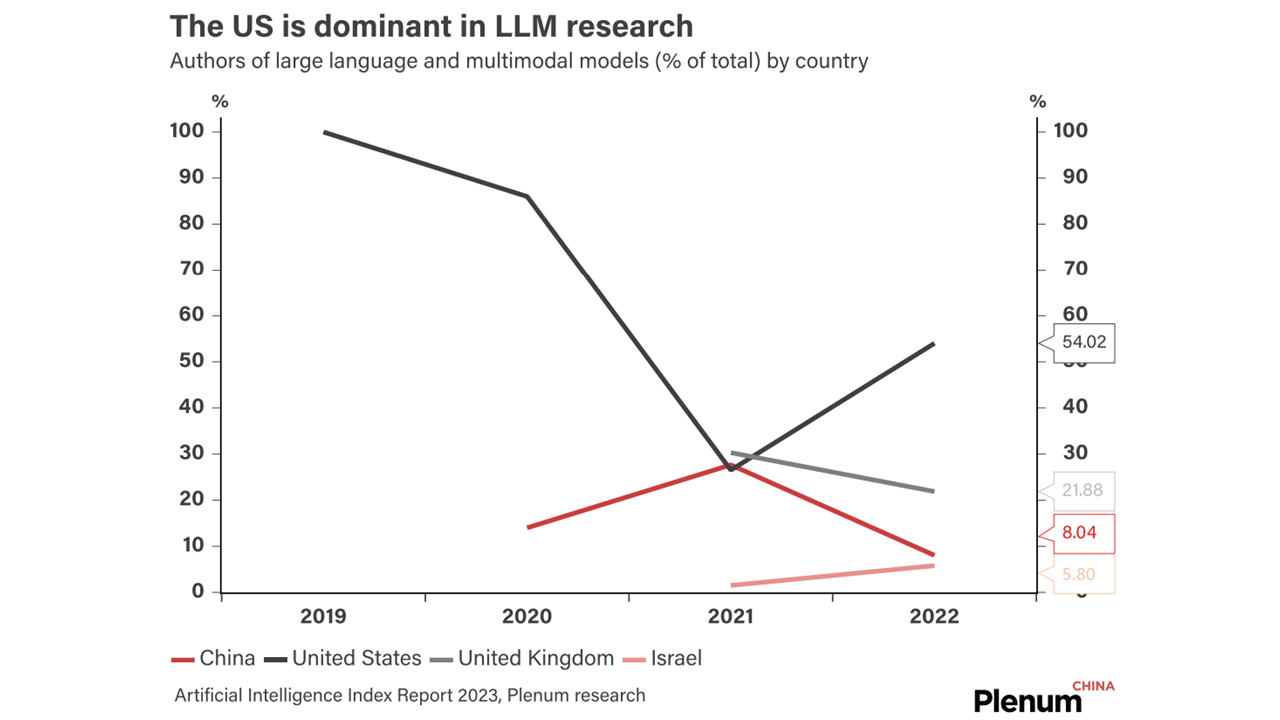
Despite moving early to control generative AI, China has been highly proactive in releasing policies to encourage the growth of the industry.
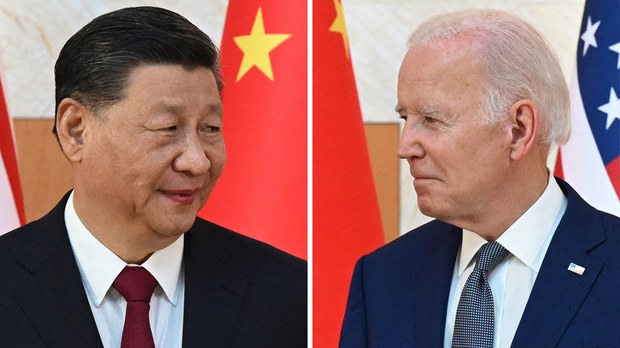
Yesterday’s call between presidents Xi and Biden was the first since their meeting in November; Xi raised concerns about Taiwan and US sanctions.
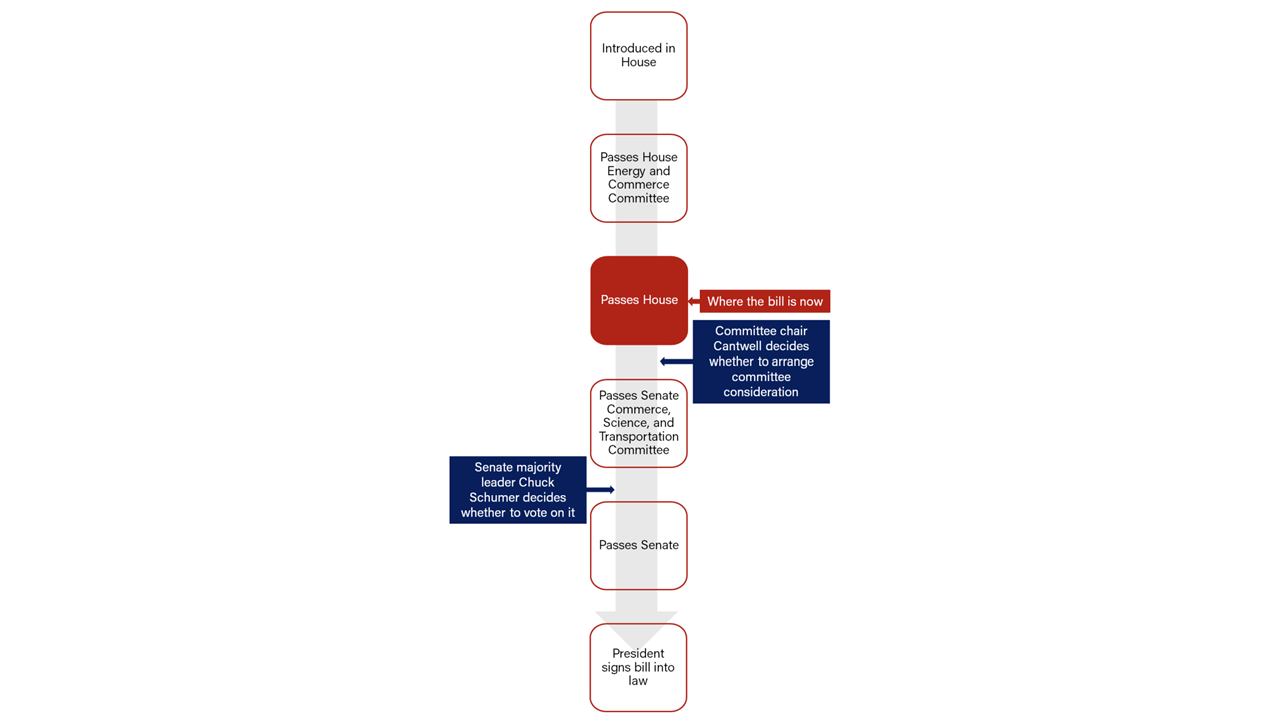
If the PAFACA Act passes the Senate Commerce Committee, the fate of TikTok will be in the hands of Senate majority leader Chuck Schumer.
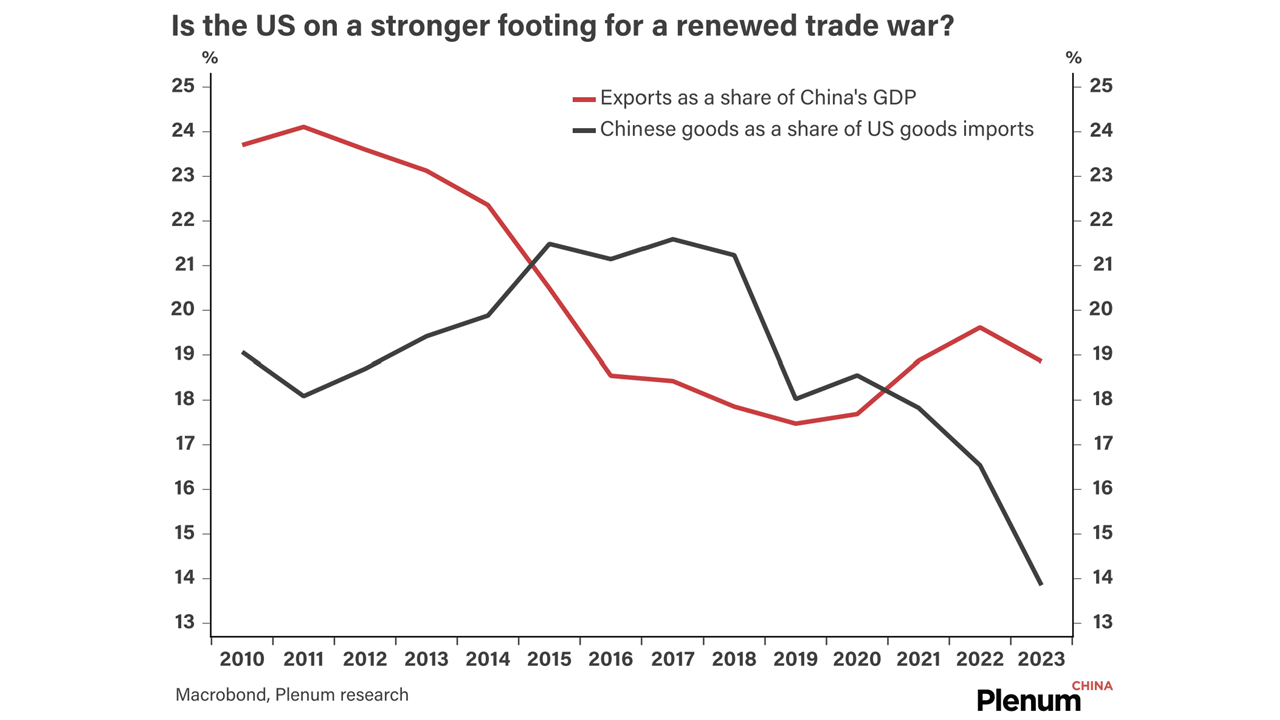
Trump’s reelection would trigger another round of escalatory economic warfare with China, characterized by tariff hikes and expansive decoupling.
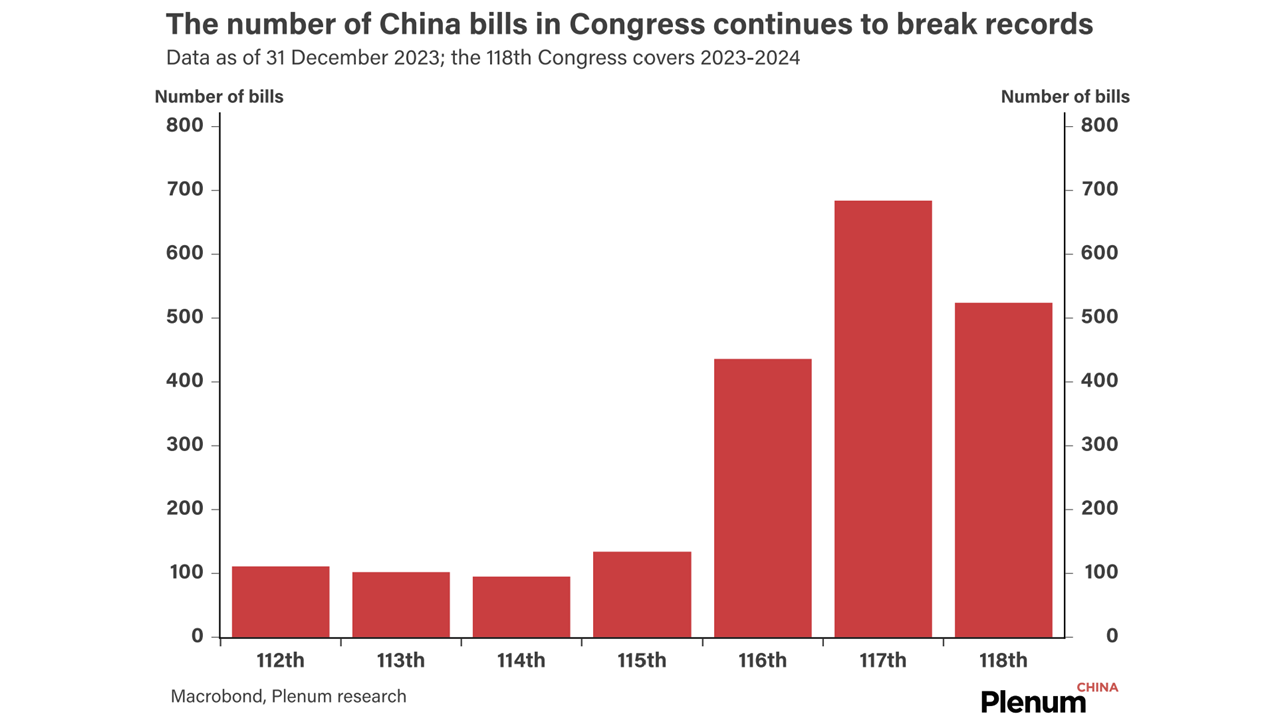
A recent bill in Congress proposing to ban federal contracting with certain Chinese pharmaceutical companies triggered a rapid market selloff.
Chinese companies survived and thrived in the US in 2023 despite headwinds; 2024 may be a window of respite and a last chance to grow deeper roots.
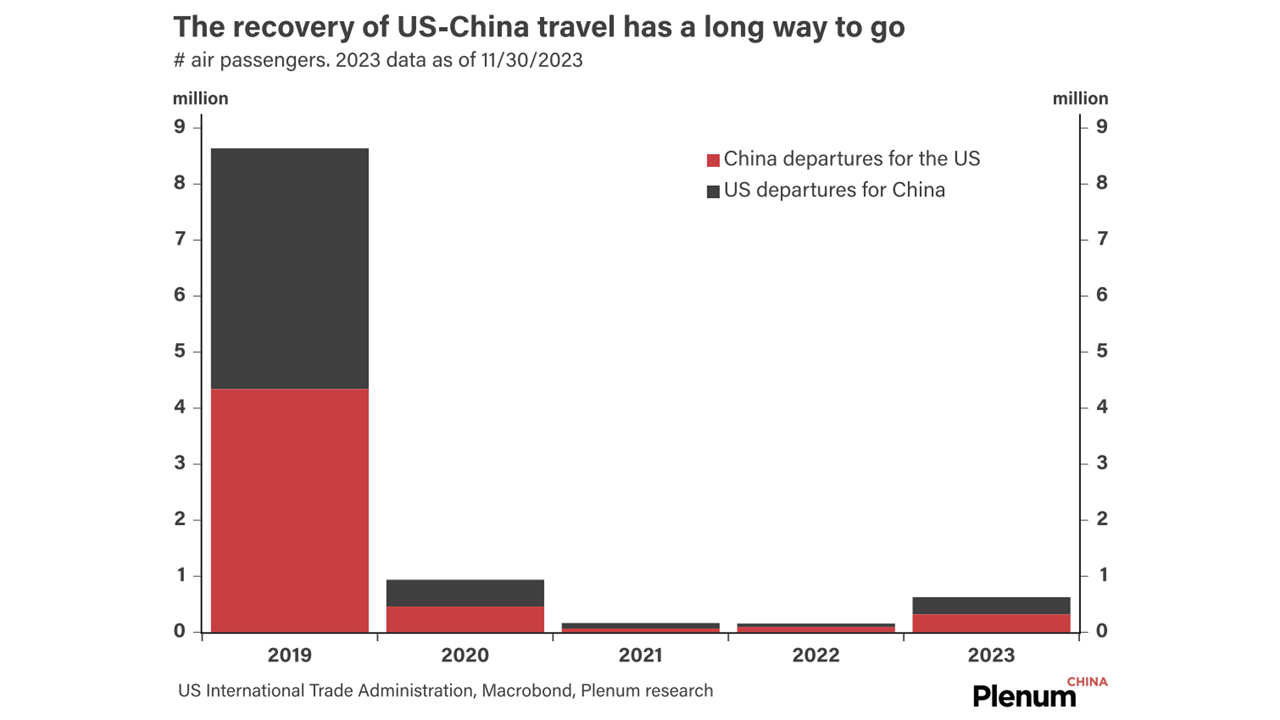
Several positive developments in US-China relations have occurred since the leaders’ summit in San Francisco in November 2023.